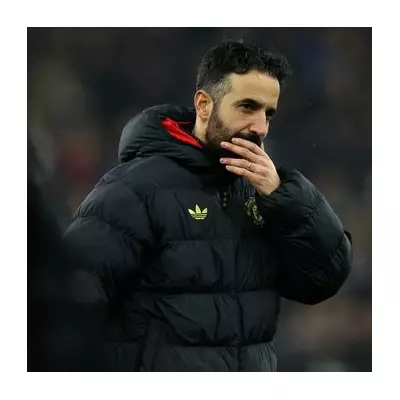
FIFA's Controversial Ronaldo Decision Sparks Legal Threat
World football's governing body, FIFA, faces potential legal action from nations drawn against Portugal in next summer's World Cup after making the unprecedented decision to suspend Cristiano Ronaldo's remaining two-match ban. The Al-Nassr star was originally handed a three-match suspension following his red card for elbowing Ireland's Dara O'Shea during a qualifier in Dublin earlier this month.
The Suspension Overturned
In normal circumstances, the 40-year-old footballer would have been forced to sit out the first two games of what will be his final World Cup tournament. However, FIFA took the remarkable step of freezing the final two games of his punishment, meaning Ronaldo only missed Portugal's final qualifier - a 9-1 victory over Armenia.
FIFA justified their decision by citing Ronaldo's previous good behaviour and the fact it was his first-ever international red card. This allows the most prolific scorer in international football history, who netted five times during qualification, to prepare for the tournament without restriction.
Potential Legal Challenge Looms
According to The Daily Mail, nations scheduled to face Portugal in the World Cup group stages are considering challenging FIFA's decision through the Court of Arbitration for Sport (CAS). The World Cup draw is set for next Friday in Washington DC, after which Portugal's opponents will be known.
Any legal challenge would aim to overturn the suspended ban and enforce the original punishment, meaning they would face Portugal without their star player. Teams would need to demonstrate that their chances of qualifying from the group would be significantly diminished by facing a Ronaldo-led Portuguese side.
The controversy has put other nations on alert, with concerns that players serving suspensions for their countries have not received similar leniency from football's governing body. Those with knowledge of the situation suggest teams directly affected by the decision could have a legitimate case.
FIFA's disciplinary code clearly states that a player should serve "at least three matches or an appropriate period of time for assault, including elbowing, punching, kicking, biting, spitting or hitting an opponent or a person other than a match official". However, Article 27 of the same code does grant FIFA's judicial committee power to "fully or partially suspend the implementation of a disciplinary measure."
The decision comes days after Ronaldo was a guest of former US President Donald Trump at the White House, though no connection between the events has been established. The World Cup will be held predominantly in the United States, along with other North American nations.





